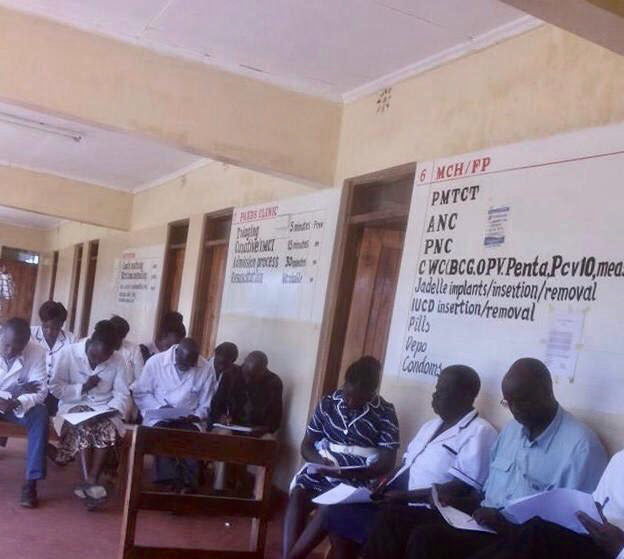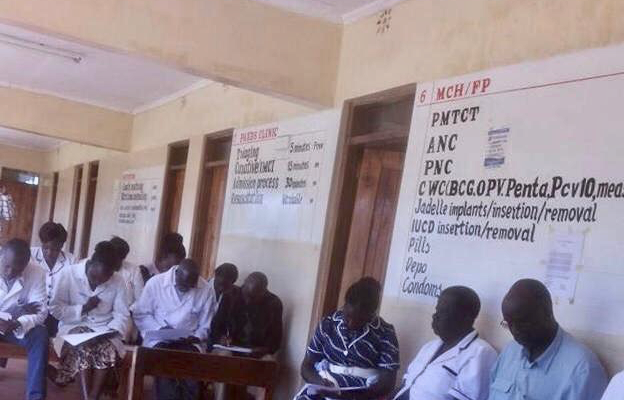Improved implementation of the right to health in Kenya through an FCGH
Submitted by Lyla Latif
In order to implement the right to health, one of the key principles that the FCGH Alliance proposes for the Framework Convention on Global Health (FCGH) centres around empowering people to claim and enforce their right to health. Such empowerment is presently missing from Kenya’s legal framework, vital though it is.
Article 43(1)(a) of the Constitution of Kenya 2010 directs that every person has the right to the highest attainable standard of health, including reproductive health care. The Constitution makes no mention of empowering people to claim this right. Instead, the article is conditioned upon the enactment of an Act of Parliament to further provide the substantive content for the right to health and indicate the measures required to implement it, albeit progressively.

In this photo, community health workers in rural Kenya reflect on how to improve health in the communities where they provide care.
Consequently, the Health Act 2018 was enacted. However, the Act lacks any legal provisions to provide guidance on the obligation of the government to build capacity in empowering people to claim and enforce their right to health. This is so even though the Kenya Health Policy 2014-2030 recognises the importance of people’s empowerment towards addressing meaningful participation of the people in clarifying to the government their health goals and needs. The Act is also silent on operational principles that would empower people to demand accountability from the government and that it address health inequities.
The FCGH seeks to improve national accountability to health commitments, including by promoting the principle of participation. In my opinion, this would provide the locally missing normative framework through which Kenyans can hold their government accountable and ensure their meaningful participation in all decisions affecting their health. The FCGH shall be the foundation upon which marginalised communities in Kenya, such as the Watha and the Ogieks who have long been discriminated and excluded from decision-making, will be ensured of avenues to demand their right to health.

